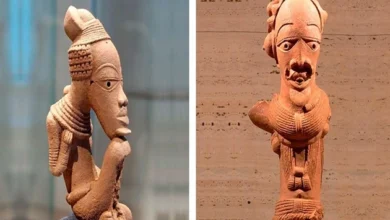King Solomon’s mistakes and wasted life

It would be easy to idealize Solomon. The Bible tells us about his riches and achievements. His nationwide construction projects pay homage to his vision. His collection of sayings and reflections on the meaning of life testifies to his quest for knowledge of a lifetime.
Seen up close, however, we can see that Solomon had a troubled and challenging life which tells us a lot about the realism we all find in ourselves and around us.
Solomon is the child who was born from his father’s marriage to Bathsheba. He has his origins in his father’s dark side. Solomon’s mother was married to another man when King David committed adultery with her and had her husband killed to cover up the disgrace.
The truth that the Lord loved Solomon (2 Samuel 12:24) and made him one of the wisest men the world has known. However, the principle established in all scripture: God does not hold us responsible for the sins of our fathers.
He came to the throne amid family conflict. When David was on the verge of death, his eldest son, whom he had by another wife, attempted to take away from Solomon the throne promised to him. At the crucial moment, Bathsheba intervened and reminded the king that he had promised the throne to his son by her (1 Kings 1: 5-21). As God told David that Solomon would be king (1 Chronicle 22.9,10), the following dramatic series of events reminds us that our enemies cannot prevent us from doing what God wants us to do.
Solomon’s first actions as king were done in a context marked by cultural and religious compromises. In an apparent effort to foster good relations between the people of Israel and their neighbor to the south, Solomon married the pagan daughter of Pharaoh of Egypt (1 Kings 3: 1). In addition, Solomon and his people worshiped in the high places where the locals offered their sacrifices to be near to their gods (v. 2,3). Such worship had been prohibited since the time of Moses (Deuteronomy 12.2). Yet despite these spiritual missteps, Solomon kept a place in his heart for the Lord, and God was patient with him. His experience reminds us that, in our broken world, God can work through our desire to honor him, even if we don’t realize how disturbed we are.
Solomon made one of his best-recorded decisions while he slept. To this day, we remember Solomon for the way he reacted when the Lord appeared to him, and He allowed him to ask for his heart’s desire (1 Kings 3: 5). Surprisingly, Solomon did not ask for wealth or long life. Instead, he asked for the intelligence and discernment necessary to know how to lead the nation entrusted to him. Result: God said he was happy with his request and promised Solomon to give him wisdom and understanding heart and riches and glory. What some ignore, however, is that Solomon made this request while he slept. This whole conversation took place in a dream (v. 15). His experience reminds us that God works with us in ways that say much more about his goodness than ours.
Solomon’s first recorded act of wisdom aimed to settle a tragic conflict between two women on the streets. God could have presented Solomon with his gift of understanding by making him compete with the gratin of society and the greatest minds in the world. Instead, her first recorded act of wisdom was used to settle a conflict between two prostitutes. The two had recently given birth to babies whose fathers were unknown. However, the baby of one of the women had accidentally died, and the other woman now claimed to be the birth mother of the living newborn. The two women appealed to Solomon to settle their dispute. By doing the unthinkable – he called for a sword and threatened to “cut the child in two”, Solomon was able to unveil the true mother’s heart (1 Kings 3: 16-28).
Solomon’s first recorded act of wisdom reminds us thatGod’s sense of justice and mercy extends to people whom others would deem unworthy.
Solomon showed us to discern the two sides of human nature. By making a threat to “cut the child in half,” Solomon demonstrated that one of the women was prepared to see the child die rather than see it in the other’s arms. The second showed that she would rather see the child be given to another than see him die. By emphasizing some of the best and worst sides of human nature, Solomon gave us an essential lesson in wisdom relating to our hearts: Wisdom prompts us to find the remaining proofs of our creation in God’s image, and contrary affections betray our declared independence from him.
Solomon’s wisdom did not prevent him from acting foolishly. Despite all the discernment God gave Solomon, he ended up doing precisely what the kings of Israel were forbidden to do (Deuteronomy 17.14-20). Yielding to a scandalous desire to satisfy his senses, he multiplied his wealth, concubines, and sexual partners. And just as one would have thought he could not do worse, Solomon had altars built to the pagan gods of his concubines on the mountain opposite Jerusalem (1 Kings 11.1-8). Solomon’s life shows us something significant: Wisdom is only helpful to us if we use it.
Perhaps one of his most important contributions is the fundamental nature of Solomon’s troubles and failures. Solomon’s folly shows us that all the wisdom in the world cannot change our human nature. Who among us would not wish to be more honest, loving, and more in control than we are naturally inclined to be? This is why, in reality, we do not need wisdom meant to reform ourselves and of which we could appropriate the merit: What we need is the wisdom that has been given to us as a gift of grace from God, in Christ, through Christ, and for Christ (1 Corinthians 1:30).
Heavenly Father, help us never to forget that we need wisdom that leads us to turn to your son, and that comes from him. Enable us to live by being ever grateful to him for his sacrifice and relying entirely on your Spirit to use the wisdom that will glorify you forever and ever.




